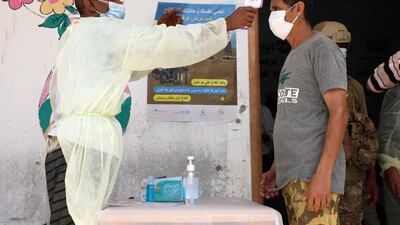The Omicron variant of the coronavirus has shown the dangers of vaccine inequality, particularly in conflict zones, the International Committee of the Red Cross has said.
Head of the ICRC Crisis Management Team Esperanza Martinez gave a warning that vaccinating the tens of millions of people living in conflict zones and other hard-to-reach areas is an "absolute necessity" if the pandemic is to be resolved.
"Only a small sliver of vaccines has so far reached conflict zones, where families and entire communities often live without access to basic healthcare services," she said.
The Red Cross estimates that more than 100 million people now live in areas either fully or partially controlled by non-state armed groups, often leaving communities out of reach of vaccination campaigns run by health ministries.
These cohorts can only be reached "through a global, decisive and collective effort", said Ms Martinez.
She said the ICRC played a supporting role in the "complex task" and "facilitates vaccinations in last-mile areas by helping gain access across front lines through its neutral, humanitarian work, and by helping with the logistics of transport and cold chains."
The challenges of such an endeavour in war zones are manifold.
Ms Martinez cited their unpredictability and typically weakened infrastructure and health systems.
She also said negotiations with armed groups can be time-consuming and sensitive.
Vaccination rates in countries experiencing conflict are disturbingly low. In Ethiopia, South Sudan and Yemen around 1.2 per cent of the population is fully vaccinated.
Somalia is at 3.5 per cent, while Syria is at 4 per cent.
That compares to a fully vaccinated rate of 43 per cent globally, figures from Our World In Data show.
"Omicron's fast-moving effect on the world shows how important it is to increase vaccination rates everywhere to reduce the risk to health workers and populations and the potential emergence of additional variants of concern," said Ms Martinez.

